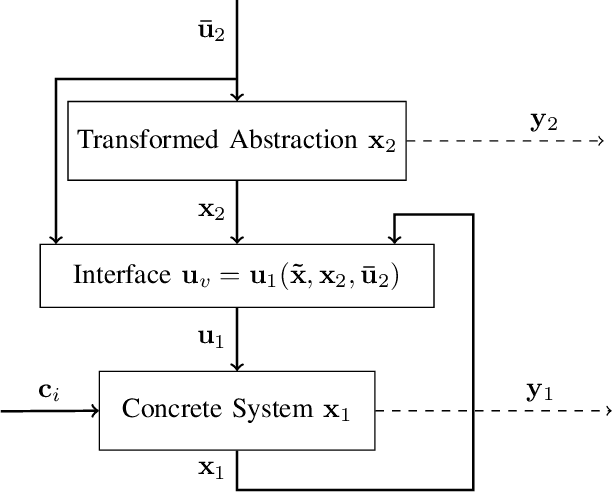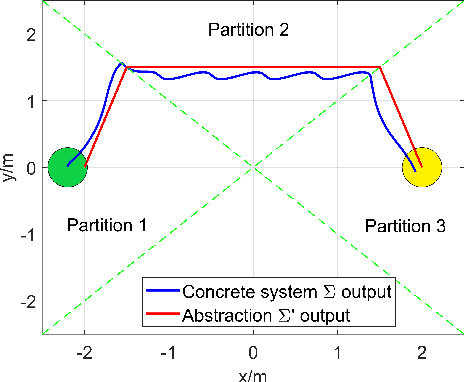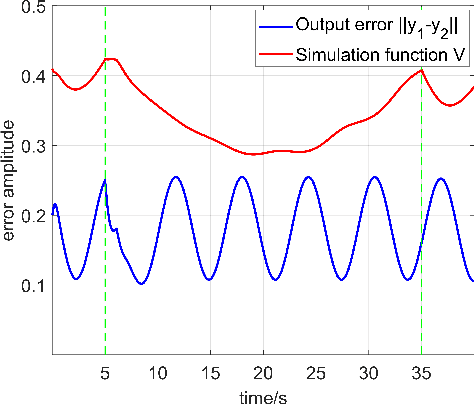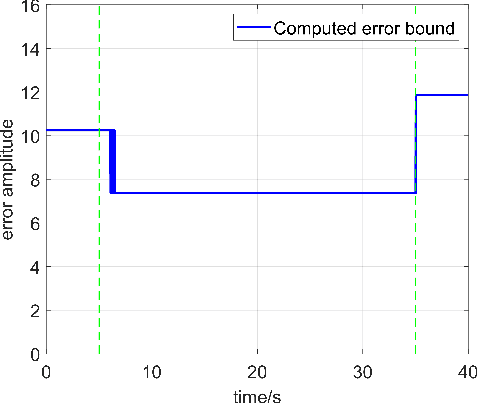Zihao Song
Graph Neural Network-Based Distributed Optimal Control for Linear Networked Systems: An Online Distributed Training Approach
Apr 08, 2025Abstract:In this paper, we consider the distributed optimal control problem for linear networked systems. In particular, we are interested in learning distributed optimal controllers using graph recurrent neural networks (GRNNs). Most of the existing approaches result in centralized optimal controllers with offline training processes. However, as the increasing demand of network resilience, the optimal controllers are further expected to be distributed, and are desirable to be trained in an online distributed fashion, which are also the main contributions of our work. To solve this problem, we first propose a GRNN-based distributed optimal control method, and we cast the problem as a self-supervised learning problem. Then, the distributed online training is achieved via distributed gradient computation, and inspired by the (consensus-based) distributed optimization idea, a distributed online training optimizer is designed. Furthermore, the local closed-loop stability of the linear networked system under our proposed GRNN-based controller is provided by assuming that the nonlinear activation function of the GRNN-based controller is both local sector-bounded and slope-restricted. The effectiveness of our proposed method is illustrated by numerical simulations using a specifically developed simulator.
Automated Identification and Segmentation of Hi Sources in CRAFTS Using Deep Learning Method
Mar 29, 2024



Abstract:We introduce a machine learning-based method for extracting HI sources from 3D spectral data, and construct a dedicated dataset of HI sources from CRAFTS. Our custom dataset provides comprehensive resources for HI source detection. Utilizing the 3D-Unet segmentation architecture, our method reliably identifies and segments HI sources, achieving notable performance metrics with recall rates reaching 91.6% and accuracy levels at 95.7%. These outcomes substantiate the value of our custom dataset and the efficacy of our proposed network in identifying HI source. Our code is publicly available at https://github.com/fishszh/HISF.
PI-AstroDeconv: A Physics-Informed Unsupervised Learning Method for Astronomical Image Deconvolution
Mar 04, 2024Abstract:In the imaging process of an astronomical telescope, the deconvolution of its beam or Point Spread Function (PSF) is a crucial task. However, deconvolution presents a classical and challenging inverse computation problem. In scenarios where the beam or PSF is complex or inaccurately measured, such as in interferometric arrays and certain radio telescopes, the resultant blurry images are often challenging to interpret visually or analyze using traditional physical detection methods. We argue that traditional methods frequently lack specific prior knowledge, thereby leading to suboptimal performance. To address this issue and achieve image deconvolution and reconstruction, we propose an unsupervised network architecture that incorporates prior physical information. The network adopts an encoder-decoder structure while leveraging the telescope's PSF as prior knowledge. During network training, we introduced accelerated Fast Fourier Transform (FFT) convolution to enable efficient processing of high-resolution input images and PSFs. We explored various classic regression networks, including autoencoder (AE) and U-Net, and conducted a comprehensive performance evaluation through comparative analysis.
Robust Approximate Simulation for Hierarchical Control of Piecewise Affine Systems under Bounded Disturbances
Mar 04, 2022



Abstract:Piecewise affine (PWA) systems are widely applied in many practical cases such as the control of nonlinear systems and hybrid dynamics. However, most of the existing PWA control methods have poor scalability with respect to the number of modes and system dimensions and may not be robust to the disturbances in performance. In this paper, we present a robust approximate simulation based control method for PWA systems under bounded external disturbances. First, a lower-dimensional linear system (abstraction) and an associated interface are designed to enable the output of the PWA system (concrete system) to track the output of the abstraction. Then, a Lyapunov-like simulation function is designed to show the boundedness of the output errors between the two systems. Furthermore, the results obtained for linear abstraction are extended to the case that a simpler PWA system is the abstraction. To illustrate the effectiveness of the proposed approach, simulation results are provided for two design examples.
 Add to Chrome
Add to Chrome Add to Firefox
Add to Firefox Add to Edge
Add to Edge